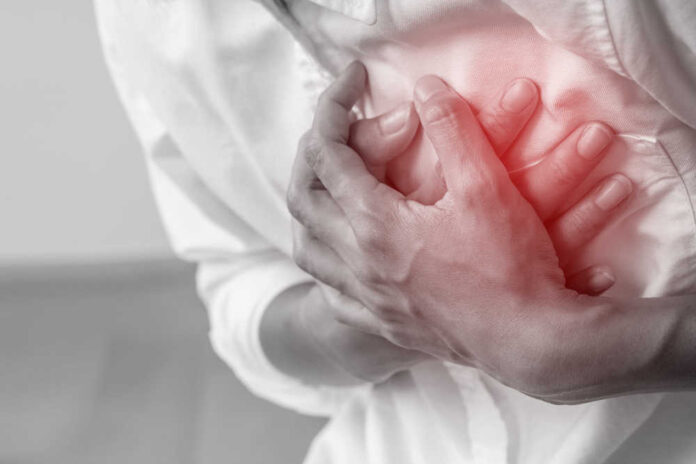
Over 800,000 people in the US suffer a heart attack each year. That’s approximately one every 40 seconds.
While the severity of heart attacks can range from mild to deadly, there are many warning signs that you should never ignore.
If you experience any of the following symptoms or see someone else experiencing them, call for emergency help immediately.
Warning Signs of a Heart Attack
Chest pain is a classic symptom that most people know about, but not everyone will experience it. It is usually described as feeling like a heavyweight is pressing down on the chest or as a tight pressure.
Pain could also be felt in your upper back and neck, and sometimes the arm (often the left arm). Arm pain may also manifest as a burning or tingling sensation.
There may also be upper abdomen pain, similar to heartburn, indigestion, or acid reflux.
Other symptoms include:
- Shortness of breath or trouble breathing
- sudden cold sweat
- nausea
- dizziness or lightheadedness
- fatigue
- throat or jaw pain or tightness
While experiencing these symptoms, it doesn’t necessarily mean you are having a heart attack. It is essential to seek medical attention right away if you have them.
Some people may be reluctant to call for help, which can be a very dangerous mistake. A heart attack is a life-threatening emergency, and it’s always better to err on the side of caution.
What is a Heart Attack?
Medically known as a myocardial infarction, a heart attack occurs when the blood flow to the heart is blocked.
Typically, this blockage is caused when LDL cholesterol, fats, and other substances build up and form plaque in the heart’s blood vessels. This plaque can eventually harden and narrow the arteries, known as atherosclerosis.
If the plaque breaks open, it can create a blood clot that will block the artery and cut off the blood flow to the heart.
And when the flow of oxygenated blood to the heart is cut off, it can quickly damage or destroy a part of the heart muscle.
Risk factors for having a heart attack include:
- high LDL cholesterol levels
- high blood pressure
- diabetes
- obesity
- cigarette smoking
- sedentary lifestyle
- prior heart attacks
- family history of heart disease
If you have any of these risk factors, it is important to work closely with your doctor to reduce your risk and protect your heart health. Your cardiologist or primary care physician can help you develop a plan to improve your diet and lifestyle habits and prescribe medications.






















